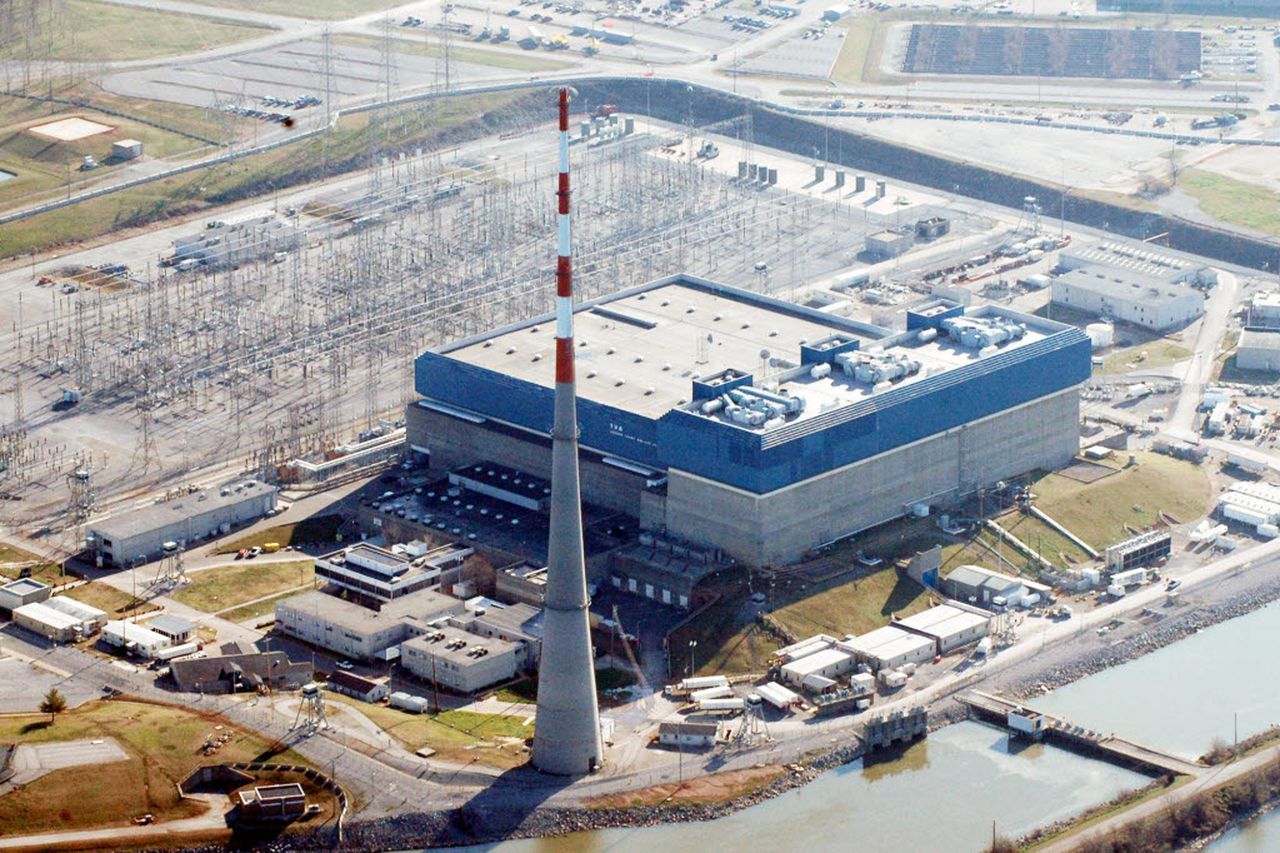GAO: Severe weather has repeatedly interrupted TVA power production
Severe weather events in the past have restricted TVA’s ability to provide electricity and more proactive steps are needed to avoid future production, a government report said.
The report by the U.S. General Accounting Office said such weather events are occurring more frequently and the federal utility that generates electricity in north Alabama and parts of six other states in the southeast is not as prepared to deal with those events as it should be. The report is titled: Tennessee Valley Authority: Additional Steps Are Needed to Better Manage Climate-Related Risks.
- Click here to read the report
Specific events in Alabama were cited as examples – including the historic tornado outbreak on April 27, 2011, that resulted in a loss of power for a week at Redstone Arsenal in Huntsville and three occasions when Browns Ferry Nuclear Plant near Athens had to reduce production due to high water temperatures in the Tennessee River.
Still another example included a TVA substation — submerged under five feet of water after heavy rains in 2010 – took seven years to be relocated to an elevated area at a cost of $9 million.
The report, completed in December and released to the public Monday, included recommendations for TVA to implement to mitigate future problems. In fact, TVA faced another severe weather event Dec. 23-24 after the report was completed when sub-zero temperatures led the utility to call for brief power outages across its footprint as it dealt with the highest demand for electricity in its 90-year history.
TVA has said it takes “full responsibility” for the need to call for the rolling blackouts and is reviewing the incident. The utility announced last month it had appointed what it described as a “blue ribbon panel” as part of that review to provide an independent perspective.
“At TVA, we take seriously our mission to deliver affordable, reliable, resilient, and sustainable energy for the customers and communities we are privileged to serve,” TVA said in a statement to AL.com responding to the GAO report. “We appreciate GAO’s recommendations. We already utilize a constant, ongoing risk process to ensure each area of our business identifies significant climate change risks on an ongoing basis; issue a Climate Adaptation report as required by executive orders in 2011 and update it regularly; and we’ve created an Enterprise Risk Management team to identify and manage risks, capitalize on opportunities, and improve risk management behaviors more effectively.”
The GAO said it conduced the report at the request of Congress to “examine U.S. energy infrastructure resilience.” The report was addressed to Sen. Tom Carper of Delaware, chair of the Senate Committee on Environment and Public Works, and Sen. Joe Manchin of West Virginia, chair of the Senate Committee on Energy and Natural Resources.
“Climate change is expected to have far-reaching effects on every aspect of the electricity grid — from generation, transmission, and distribution, as well as consumer demand for electricity — as we reported in March 2021,” the GAO report began. “In that report, we found that these effects could result in costs to utilities and customers in the billions of dollars, including the costs of disruptions to electricity generation capacity; power outages and infrastructure damage; operational challenges; and the need for capital investments.”
While climate change is often cited as a cause of extreme weather events, the GAO report noted that it can also result in more subtle environmental changes that, in TVA’s case, can interrupt power production. An example cited in the report were the reductions in power at Browns Ferry.
“Increasing temperatures may trigger environmental requirements that could force a power plant to shut down or reduce power generation,” the report said. “For example, in 2007, 2010, and 2011, TVA had to reduce power output from its Browns Ferry Nuclear Plant because river temperatures were too high to receive discharge water without raising ecological risks.”
Drought is another threat, the report said, pointing to an extended period of insufficient rain in 2007 and 2008 in the TVA region that was among the worst on record, according to the U.S. Department of Energy and Department of Homeland Security report in 2017, the GAO report said.
“Even as the drought began to ease in early 2008, TVA’s hydropower generation was only at 49 percent of normal operation,” the GAO report said. “During the drought, coal prices more than doubled, forcing TVA to rely on additional natural gas purchases to meet generation needs. In October 2008, TVA raised rates by 20 percent in order to absorb more than $2 billion in increased costs for coal, natural gas, and purchased power, according to the report.”
TVA needs to do more to account for the threats posed by climate change, the GAO report said. Increased measures to prevent interruptions in power production are the report’s recommendations.
“TVA has taken several steps to manage risks posed by the effects of climate change,” the report said. “However, TVA has not conducted an inventory of assets and operations vulnerable to climate change or identified and prioritized resilience measures to address these climate change vulnerabilities.”
Conducting such an inventory is the first recommendation, followed by developing a resilience plan. Finally, TVA needs to routinely reassess that resilience plan and make necessary updates. The GAO report said TVA, in its written comments in reviewing the report, neither agreed nor disagreed with the recommendations.
